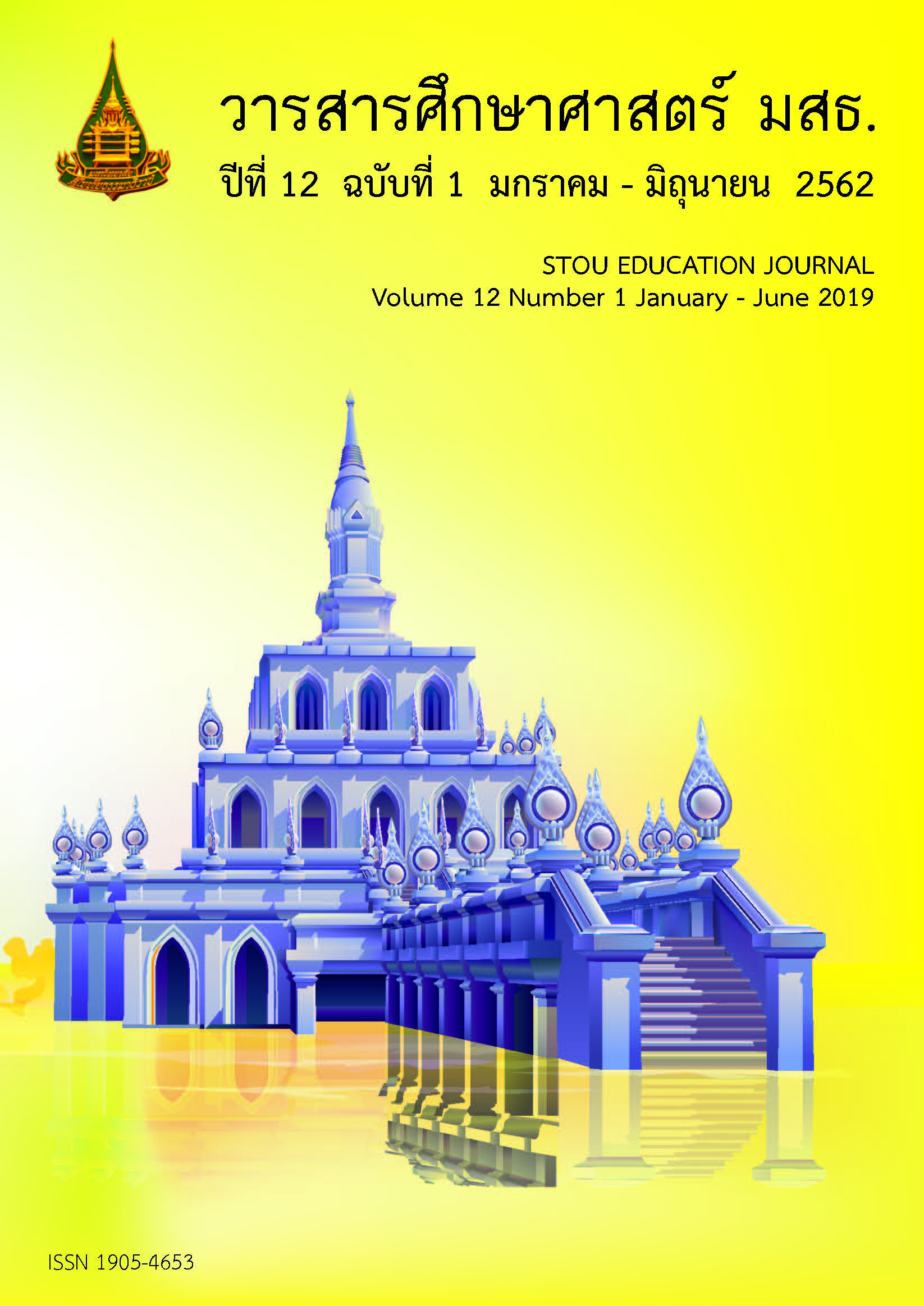Focus Group Discussion: Effective Qualitative Data Collection Technique
Main Article Content
Abstract
Focus group discussion is a popular method for collecting qualitative data which focuses on discussion, argument and debate of knowledgeable people who have experiences in a special issue. The important elements of focus group discussion are; clear and well organized issues or guideline for questions that should be consisted of a primary question, main questions and question for conclusion; participants in the focus group discussion that have knowledge and experiences in the issue; moderator with knowledge and experiences in focus group moderator, and in addition, there must be other officers, such as recorders and general service functionaries as well as a suitable equipment, location and timing. A good focus group discussion moderator should have the characteristics of politeness, sincerity, flexibility and pay respectability to the participants including playing the role of a facilitator for smooth discussion. For limitations on focus group discussion, it is found that group discussion may inapplicable to sensitive or highly subjective issues. In addition, there are many restrictions on operations, if the operation is not appropriate, it can be affected to the discussion and the research results will be unreliable or unable to answer the research questions.
Article Details
References
เก็จกนก เอื้อวงศ์ และพิชิต ฤทธิ์จรูญ. (2556). หน่วยที่ 2 วิธีวิจัยทางการบริหารการศึกษา. ในประมวลสาระชุดวิชา 23721 การวิจัยทางการบริหารการศึกษา (หน่วยที่ 1-5. น. 2-15 ถึง 2-118). นนทบุรี: สาขาวิชา ศึกษาศาสตร์ มหาวิทยาลัยสุโขทัยธรรมาธิราช.
ทวีศักดิ์ นพเกสร. (2548). วิธีการวิจัยเชิงคุณภาพ เล่ม 1. ชมรมพยาบาลชุมชนแห่งประเทศไทย: กรุงเทพมหานคร.
วีรสิทธิ์ สิทธิไตรย์ และโยธิน แสวงดี. (2536). การสนทนากลุ่ม: เทคนิคการวิจัยเชิงคุณภาพ (พิมพ์ครั้งที่ 2). สมาคมวิจัยเชิงคุณภาพแห่งประเทศไทย: จุฬาลงกรณ์มหาวิทยาลัย.
Baral, S., Uprety, S. & Lamichhane, B. (2016). Focus group discussion. Retrieved from https://www.herd.org.np/uploads/frontend/Publications/PublicationsAttachments1/1485497050-Focus%20Group%20Discussion_0.pdf.
Bloor, M., Frankland, F.,Thomas, M. & Robson, K.(2001).Focus groups in social research.Thousand Oask : SAGE Publications.
Eisner, Ellot W. (1976). Educational connoisseurship and criticism: their form and functions
in educational evaluation. Journal of Aesthetic Education,10 (3/4) Bicentennial Issue. pp.135-150.
Escalada, M. & Heng, K.L. (2014). Focus group diseussion. Retrieved from https://www.researchgate.net/plublication/242589494.
Krueger, R. A. (2002). “Designing and Conducting Focus Group Interview” Retrieved from http://www.eiu.edu/~ihec/Krueger-FocusGroupInterviews.pdf.
Liamputtong, P. (2011). Focus group methodology: Principle and practice. Thousand Oask: SAGE Publications.
Merriam, S. B. (2009). Qualitative research: A guide to design and implementation. San Francisco: Jossey-Bass.
Morgan, D. L. (1998) The focus group guidebook. California: Sage Publications.
Nyumba,T.O., Wilson K.,Derrick, C. J. & Mukherjee N. (2018). The use of focus group discussion methodology: Insights from two decades of application in conservation. Methods in Ecology and Evolution, 9: 20-32. DOI: 10.1111/2041-210X.12860.
Puchta, C. and Potter, J. (2004) Focus group practice. Thousand Oask : SAGE Publications.


